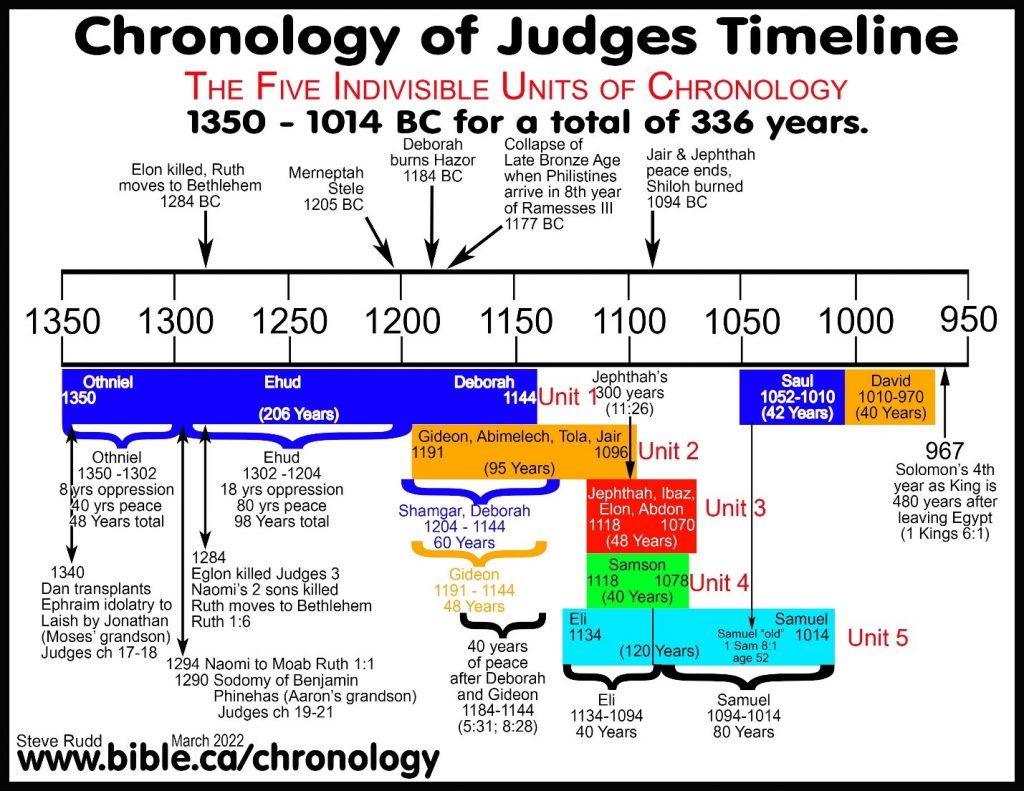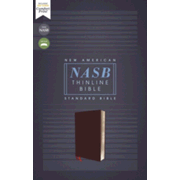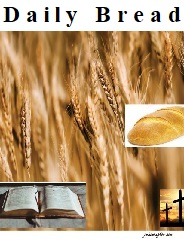The children of Israel asked God to name a leader.
The Israelites did the right thing – the thing Joshua would have wanted them to do. With Joshua gone, they were not left without a leader. They were simply called to a renewed trust in God.
When Israel sought the LORD, He guided them. This is a consistent pattern through the Book of Judges. God never failed to deliver and help His people when they sought Him.
Jesus expressed the same thing, “So I say to you, ask, and it will be given to you; seek, and you will find; knock, and it will be opened to you. For everyone who asks, receives; and he who seeks, finds; and to him who knocks, it will be opened.” (Luke 11:9, 10, NASB)
The Book of Judges Helps Us to Know God.
God was faithful to the covenant relationship, even when the people of Israel were not faithful. God is also patient with His people. The Israelites often acted like children who make the same mistakes over and over again, even when they are given clear instructions on the right way to act.
After the Death of Joshua
After the death of Joshua is the Biblical period of the Judges. The Book of Judges is the seventh book in both the Old Testament of the Christian Bible and the Hebrew Tanakh. Within the Jewish Tanakh, it is the second book in the Nevi’im, the writings of the prophets. This book stands as the second in the Former (or First) Prophets covering the history of Israel from the possession of the Promised Land to the Babylonian Captivity.
The Book of Judges was written by the prophet Samuel at approximately 1050 BC, covering the events from 1375 BC. The Talmud (the body of Jewish civil and ceremonial law and legend comprising the Mishnah and the Gemara) says, Samuel wrote the Book of Judges and the Book of Samuel, until his death, at which point the prophets Nathan and Gad picked up the story. And the Book of Kings, according to tradition, was written by the prophet Jeremiah.
The majority of the Book of Judges was originally part of a continuous work known as the Deuteronomic History stretching from Deuteronomy to 2 Kings, which was later broken up when the Torah was constructed. Textual critics also treat 1 Samuel 1:1-7:2, which discusses Eli and Samuel, as having originally been part of the Judges section of the Deuteronomic History narrative.

The Hebrew Bible speaks of the former and latter prophets. The former prophets are Joshua, Judges, 1 and 2 Samuel, 1 and 2Kings. The latter prophets are Isaiah, Jerimiah, Ezekial, and the so-call Minor Prophets. Joshua wrote the book that bears his name; Samuel wrote Judges. 1
The Sin Cycle in Judges
The Israelites fell into a continuous cycle of sin, bondage, deliverance, and peace. Every judge was imperfect, yet God worked through the judges. God was faithful to the covenant relationship, even when the people of Israel were not faithful.
God is also patient with his people. The Israelites often acted like children who make the same mistakes over and over again, even when they are given clear instructions on the right way to act.
The whole Book of Judges is a remarkable history of the patience and tolerance of God towards the Israelites. In it are instances of His justice and mercy alternately displayed; the people sinned, and were punished; they repented, and found mercy. These things are written for our warning. No one should presume, for God is JUST; no one needs to despair, for God is MERCIFUL.
The Book of Judges shows us a time that is sometimes confusing, difficult, and dark. For this reason, many regard the Judges period as a “dark age” of Israel’s history. But this book tells of a wonderful account of the love and graciousness of God, and how He lovingly corrects His people.
Israel’s Leadership
When Joshua died, Israel lost a critical link in its godly leadership. Moses was the great leader used by God to bring them out of Egypt; Joshua was Moses’ assistant and the great leader used by God to bring them into the promised land. But Joshua appointed no leader after him to guide the whole nation. They were in a critical place where they had to trust God more intensely than they ever had before.
At this time, Israel needs to complete the national task that Joshua started. Joshua had led them to incredible victories. The promised land was taken. Now the land needed to be possessed by Israel.
The people of Israel had great obstacles. They were surrounded by people who lived in immorality and idolatry, making a constant temptation to the same sins. The idolatrous lives of the Canaanites who lived around Israel were focused mainly on three things: money, sex, and having a relationship with God on their terms instead of God’s terms.
The Israelites were convinced that the war against the Canaanites was to be continued, but they were in doubt as to how it was to be carried on after the death of Joshua. So, the Book of Judges starts with their inquiry of the Lord. (Judges 1:1)
God gives wonderful human leaders to His work on this earth, and it is always difficult for God’s people when those human leaders pass from the scene.
In Judges, chapter 1 begins with a report on the effort by each tribe to drive the Canaanites out of their regions. It begins on a positive note. The people ask the Lord who should attack the Canaanites first. The Lord says Judah is to begin and promises the land has been given into their hands.
Judges Were Leaders.
Judges chapter 1 summarizes the early efforts of the tribes of Israel to drive the Canaanites from the land or to destroy them entirely (Deuteronomy 7:1–5; 9:4). The process starts well with a string of successes by Judah and Simeon in the south.
“Judges” refers to leaders in the tribes of Israel who were chosen by God or the people to deliver the Israelites from their enemies. The judges were more like military leaders than actual judges who deal with issues of law.
These national deliverers were not elected, and they didn’t come to leadership through royal succession. They were specially gifted by God for leadership in their times, and the people of God recognized and respected that gifting.
The judges arose as Yahweh saw fit, in order to lead an erring and repentant people to a restoration of a right relationship with Him and to victory over their enemies.
The judges were successive individuals, each from a different tribe of Israel, chosen by God to rescue the people from their enemies and establish justice and the practice of the Torah amongst the Hebrews. Per the needs of the time, their functions were primarily martial and judicial.
For 340 Years, God Provided National Leadership.
During the period of the judges, which lasted about 340 years, there was no standing “office” of national leadership. Israel had no king, no president, no prime minister on earth – only God in heaven. And at the necessary and appropriate time, God would bring forth a leader for the nation who would rise up, do his (or her) job, and then move on back to their obscurity. The Book of Judges contains the history of Biblical judges who helped rule and guide the ancient Israelites. There were thirteen Biblical Judges.
When the Book of Judges uses the term “judge,” it doesn’t mean someone who sits in a court and decides legal issues; the Hebrew word “shaphat” has more the idea of a heroic leader.
Who Were the Judges?
The Book of Judges mentions twelve leaders who are said to “judge” Israel: Othniel, Ehud, Shamgar, Deborah, Gideon, Tola, Jair, Jephthah, Ibzan, Elon, Abdon, and Samson.
Deborah is one of the major judges (charismatic military leaders, not juridical figures) in the story of how Israel takes the land of Canaan. She is the only female judge, the only one to be called a prophet, and the only one described as performing a judicial function.

God Replies: Judah Shall Go Up.
All of Israel asked the Lord who should go up to fight against the Canaanites. This is noble. It shows that at least at the outset the Israelites cared about God’s priorities. Initially, they wanted to drive the Canaanites out.
And so, the Lord tells them that the tribe of Judah should go up first. He gives the promise that He’s with them and has already delivered the land into their hand.
God directed that the tribe of Judah, the tribe that the Messiah would come from, should lead the way in this fight. Judah was also the largest and strongest tribe. In this case, God’s plan made obvious military sense.
- Judah was the most numerous and powerful tribe. Note, God appoints service according to the strength He has given. Those that are most able, from them most work is expected.
- Juda was also the first to be assigned territory west of the Jordan (Joshua 15).
- Judah was first in dignity, and therefore must be first in duty. He most praised is he who must lead in perilous services. The burden of honor and the burden of work go together.
- Judah was the tribe out of which Jesus was to spring. So, Christ, the Lion of the tribe of Judah, went before them. Christ engaged the powers of darkness first, and foiled them, which animates us for our conflicts; and it is in Him that we are more than conquerors.
Applications of Judges 1: 1, 2
There are some similarities to the Christian life from this passage of Judges chapter 1 verses 1 and 2. Israel has been handed a major victory. So have we – the Lord has saved us from sin’s penalty. Our flesh has been given a knock-out punch. Israel had to drive out the remaining Canaanites. If they didn’t, the Canaanites would become a major stumbling block to Israel. For you and I, we need to resist the world. It’s actively trying to shape us into its mold. We need to be transformed by renewing our minds.
And we’re not alone in this. Israel, all together, asked the Lord about who ought to attack the Canaanites first. Judah asked Simeon to help them, and maybe that was a good thing. Certainly, in our Christian walk, it’s alright and even advisable to not be islands unto ourselves. Iron sharpens iron. We’re not to forsake assembling, but rather we need to encourage one another – day after day! So that none of us would be hardened by the deceitfulness of sin. We have internal Canaanites, so to speak, and they’re actively trying to shape us into their image. We need the fellowship of one another to keep us from being hardened.
Jesus expressed the same idea, “So I say to you, ask, and it will be given to you; seek, and you will find; knock, and it will be opened to you.” (Luke 11:9, 10, NASB) When we ask of God and seek Him in sincerity, we should expect that He will answer us. His response may come in an unexpected way, but we should expect that it will come.
In Summary
The theology of the book of Judges is that God will keep His word and will not overlook disobedience, but also that He is always willing to forgive his people and rectify their transgressions. God will stay faithful to His promise but Israel must live in obedience to inherit the benefits of the promise.
The real key to the success of the Judges was the empowerment of the Spirit of God who enabled them to accomplish great feats. In Joshua’s farewell address, he explains to the people of Israel that they will remain in Canaan and prosper in the land only when they comply with the Mosaic covenant.
Judges teaches us that no matter how long or how far we stray from God, God is faithful and rescues us when we cry out to him. The stories found in Judges reveal God’s character and demonstrate how God works through his chosen leaders to rescue and deliver his people.
The Book of Judges helps us to know that God was faithful to the covenant relationship, even when the people of Israel were not faithful. God is also patient with his people. The Israelites often acted like children who make the same mistakes over and over again, even when they are given clear instructions on the right way to act.
The last verse in Judges reads, “In those days there was no king in Israel; everyone did what was right in his own eyes.” (Judges 21:25 NASB). This conclusion is perfect for a book whose entire writings describe a time of such turmoil.
__________________ SHOP: ________________


NASB Comfort Print Thinline Bible, Red Letter Edition–bonded leather, burgundy
By Zondervan
The beloved 1995 Edition of the New American Standard Bible is now easier to read with Zondervan’s exclusive NASB Comfort Print® typeface. This edition of the NASB Thinline Bibles is available in a variety of sophisticated designs in a portable, easy-to-read format.
- The full text of the New American Standard Bible, 1995 Edition
- Exquisite, durable covers
- Less than one inch thick
- Double-column format
- Presentation page
- Two satin ribbon markers
- Words of Christ in red
- Exclusive Zondervan NASB Comfort Print 9 point type
Features:
____________________________________________
In conclusion, consider what the Daily Bread email message sent on 2/3/2023 says,

Judges 1:1, 2 – Now it came about after the death of Joshua that the sons of Israel inquired of the LORD, saying, “Who shall go up first for us against the Canaanites, to fight against them?” The LORD said, “Judah shall go up; behold, I have given the land into his hand.” (NASB)
When Israel sought the LORD, He guided them. This is a consistent pattern throughout the Book of Judges. God never failed to deliver and help His people when they sought Him.
In the Book of Judges, the Israelites often acted like children who make the same mistakes over and over again, even when they are given clear instructions on the right way to act. But God was faithful to the covenant relationship, even when the people of Israel were not faithful. God is also patient with his people.
Jesus expressed the same thing, “So I say to you, ask, and it will be given to you; seek, and you will find; knock, and it will be opened to you. For everyone who asks, receives; and he who seeks, finds; and to him who knocks, it will be opened.” (Luke 11:9, 10, NASB)
You Can Receive The Daily Bread, for FREE.
To receive the Daily Bread email messages, free on Mon., Wed., and Fri., in your email inbox, just fill in the form below or send an email, and ask to be added, to jmikeh@jmhowington.com
References:
1. Henry C. Thiessen (revised by Vernon D. Doerksen), Lectures in Systematic Theology (Grand Rapids, MI: Eerdmans, 1981), pg. 52.

Thanks for sharing. I read many of your blog posts, cool, your blog is very good.